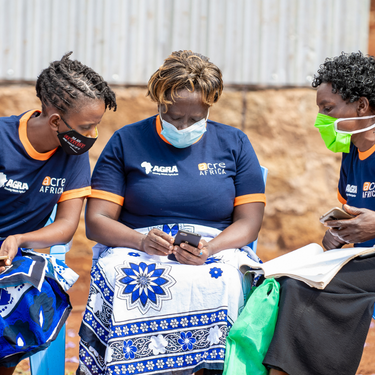Following a competitive placement process executed by Willis Towers Watson’s parametric broking specialists within its Climate and Resilience Hub and Alternative Risk Transfer team, AXA Climate on behalf of AXA XL were selected as the capacity provider.
Antoine Denoix, CEO of AXA Climate, said: “AXA Climate’s mission is to support the transition to a sustainable and more resilient world. Protecting coral reefs is essential for the balance of the oceans and the millions of people who depend on them. We are very proud to support this innovative programme. It demonstrates the key role insurance plays in incentivising preparedness and providing rapid finance to mitigate ocean related risks and restore corals as quickly and efficiently as possible.”
Willis Towers Watson has been working closely with MAR Fund to explore how the tools and products of the insurance industry can be best deployed to support the conservation of the Mesoamerican Reef. The development of this innovative programme is made possible with financing from the InsuResilience Solutions Fund, building on the early support of Global Affairs Canada through the Ocean Risk and Resilience Action Alliance.
Dr Simon Young, a senior director of the Climate and Resilience Hub at Willis Towers Watson, said: “This ground-breaking programme demonstrates how novel approaches to risk financing can incentivise and deliver the rapid action which is so beneficial to building reef resilience in the face of the increasing impacts of climate change, from warming oceans to severe weather events. We are delighted to have AXA Climate on board and look forward to working closely with their team, while also acknowledging the keen interest and commitment of the broader reinsurance market demonstrated in part by such strong pricing competition.”
The launch of the MAR reef insurance programme represents a major advance in coastal community and ecosystem resilience. With the inception of parametric insurance to finance the activities of emergency response groups, crucially important reef sites on the Mesoamerican Reef will now be far more resilient to hurricane damage.
The four critical coral reef areas covered by this year’s insurance policy are Banco Chinchorro, Arrecifes de Xcalak, Hol Chan, and Turneffe Atoll. Plans are already in place for the pilot insurance programme to expand further to other key sites along the full length of the 1,000km reef system, which stretches along the Western Caribbean.
The insurance cover will trigger when hurricanes approach close enough to any of the four sites to cause significant damage to the coral reefs to require urgent response. The financial mechanism provides reliability, enabling response groups to carry out essential conservation activities in the immediate aftermath of hurricanes, by connecting pre-arranged, and therefore predictable and timely, finance to pre-planned reef response activities.
María José González, executive director of MAR Fund, said: “Emergency response groups that integrate local communities and are trained to act immediately after a storm retreats, are critical to connecting sustainable finance with concrete reef resilience outcomes. Bringing together human capacity and financial sustainability is vital to securing reef recovery and resilience.”
Dr Annette Detken, Head of the InsuResilience Solutions Fund, said: “Climate risk insurance enables vulnerable countries to respond more quickly and effectively. To address these issues and strengthen the resilience of poor and vulnerable people in developing countries, the InsuResilience Global Partnership aims to scale-up climate and disaster risk finance and insurance approaches for poor and vulnerable countries. We look forward to seeing this innovative approach being replicated in other countries.”
About MAR Fund
MAR Fund is a regional private environmental fund that carries out the Reef Rescue Initiative, with the mission to support the long-term ecologic and economic viability of the Mesoamerican Reef and the environmental services it provides, through a holistic strategy that recognises the deep connection between ecological and economic wellbeing in the region. It has been working with local conservation organisations and government agencies at each of the reef sites to put in place plans for response and to train and equip “brigades” to execute immediate reef-saving activities, including re-attachment of broken coral heads. Any insurance pay-out will be made within days into the existing Emergency Fund of the MAR Fund. The funds will then be transferred to predefined organisations that will make the required purchases and payments for the early action response.
About InsuResilience Solutions Fund
The mission of the InsuResilience Solutions Fund (ISF) is to support innovative solutions to mitigate the negative impacts of climate change. Therefore, ISF fosters the development of needs-based and financially sustainable climate risk insurance products in developing and emerging countries. Support for the insurance placement has been provided by ISF, managed by Frankfurt School of Finance & Management and funded by KfW Development Bank on behalf of the German government, under the Mesoamerican Reef Insurance Programme, with co-funding from Willis Towers Watson, MAR Fund, and Global Affairs Canada through the Ocean Risk and Resilience Action Alliance.
About the Climate and Resilience Hub
The Climate and Resilience Hub (CRH) is the focal point for Willis Towers Watson’s climate expertise and capabilities, pooling knowledge from across our people, risk, and capital businesses and from our collaborations to deliver climate and resilience solutions in response to a range of regulatory, investor, consumer, employee, and operating pressures. Under the Climate Quantified™ brand, we deliver analytics, advice, and transactions to enable corporate, finance, and public sector institutions to embrace the climate decade ahead.
About Willis Towers Watson
Willis Towers Watson (NASDAQ: WLTW) is a leading global advisory, broking, and solutions company that helps clients around the world turn risk into a path for growth. With roots dating to 1828, Willis Towers Watson has 45,000 employees serving more than 140 countries and markets. We design and deliver solutions that manage risk, optimise benefits, cultivate talent, and expand the power of capital to protect and strengthen institutions and individuals. Our unique perspective allows us to see the critical intersections between talent, assets, and ideas — the dynamic formula that drives business performance. Together, we unlock potential. Learn more at willistowerswatson.com.
About AXA Climate
AXA Climate promotes a committed climate insurance: we prioritise working with clients committed to a sustainable transition. We integrate best-in-class climate expertise and satellite data in all our products. We believe from this decade onwards, only private and public actors committed to a sustainable transition will be insurable. Our mission is to reinvent the insurance business to support those engaged in sustainable transitions. We have developed a set of business lines around climate change: parametric insurance against climate risk, operational warning, climate consulting services, and training to engage all employees. We are a team of over 80 collaborators spread across the 5 continents, leveraging the entire AXA ecosystem.


































































